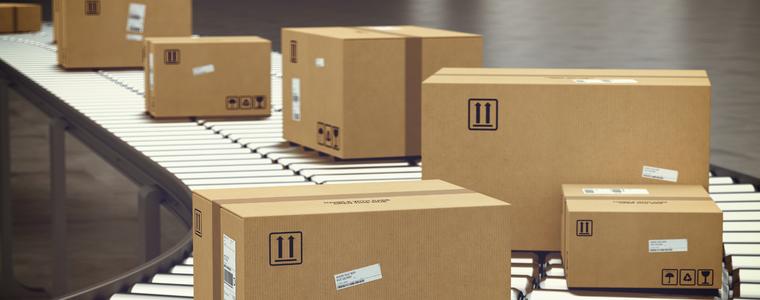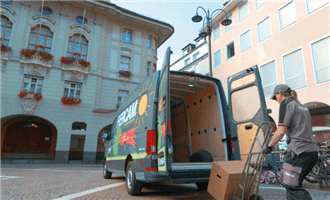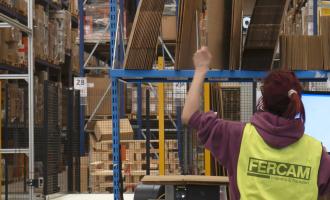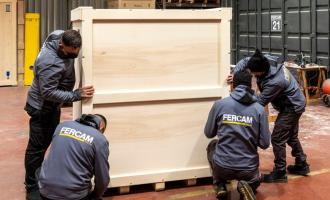
Eco-sustainable and e-commerce-ready packaging
Packaging is an essential element within the logistics chain, it is in fact essential to allow goods to reach their recipients perfectly intact. In recent years, the wrapping that protects products during transport and storage has acquired an ever-increasing level of importance, and is considered an integral part of the shopping experience.

Protect the goods to ensure correct and efficient handling, but also preserve the product from humidity, sudden changes in temperature, light… without adequate packaging all this would not be possible. Again, packaging helps to identify and distinguish goods during the logistic process and becomes a marketing tool where, as for example in the e-commerce sector, it constitutes the very first thing that the final consumer sees. Today, therefore, manufacturing and logistics companies are led to deepen their reflections on packaging, driven by changes in purchasing habits, new awareness and changing needs of buyers. These current challenges are added to the more canonical ones related to the costs of raw materials and production.
Packaging as a business card of the product
While shopping in a store, we know how much the packaging represents a business card for the final product. A carefully designed package can positively affect the success of a sale. After all, most of the products we purchase are in closed boxes. Even surfing the internet, you can easily come across contents dedicated to unboxing experience, focused on sharing and commenting on first impressions when opening the package of newly purchased products.
But what happens when the purchase is made online? We choose by looking at virtual images of the product and we wait to be able to handle it when the courier brings it to our doorstep. Our purchase will arrive protected by an external packaging and it is therefore this that constitutes the first impression of the item. Do we see a solid or dented cardboard box? A lightweight or padded envelope? An anonymous package or dressed in colors that recall the manufacturer's brand? There are therefore numerous factors to consider when preparing the packaging.
Environmental sustainability: the new playing field
In addition to the previous considerations, dutiful reflections related to the sustainability of materials used need to be added, in a society that today places emphasis on the importance of recycling or reusing materials. In this scenario, the choice of packaging components becomes of great importance. The game of eco-sustainability is increasingly important and must be played on a terrain that still often sees environmentally harmful elements as protagonists.
Furthermore, consumers are increasingly aware of the negative effects that inefficient packing design can have, as in the case of a small product shipped in a large box, then filled with protective material.
Many companies are doing their utmost to reduce or eliminate the amount of waste deriving from product packaging, by investing in high quality packaging, capable of guaranteeing the safety of goods during transport and delivery but also of being sustainable in environmental terms thanks to recycled, easily recyclable or compostable materials.
Your logistics partner can make a difference
The challenge for the contemporary logistics supply chain is to be able to respond to current trends, supporting manufacturers in rethinking packaging according to customer needs, welcoming the sensitivity of recipients and reducing the impact of industrial production on our ecosystem. Collaboration with your logistics partner is strategic for efficient planning and management.
An example of this is the project that FERCAM developed in collaboration with an important customer, which earned the two companies joint attribution of the "Logistics of the year 2021" award, precisely for the creation of an automatic line dedicated to packaging. The machine creates a customized cardboard package for each item (to assure the customer's privacy as well as for protective purposes) closed with paper adhesive tape. For heavier items, a pallet is also created, again made of cardboard, instead of a wooden one. The entire packaging is therefore 100% recyclable or biodegradable and itself produced from recycled cardboard.


 Language
Language

























